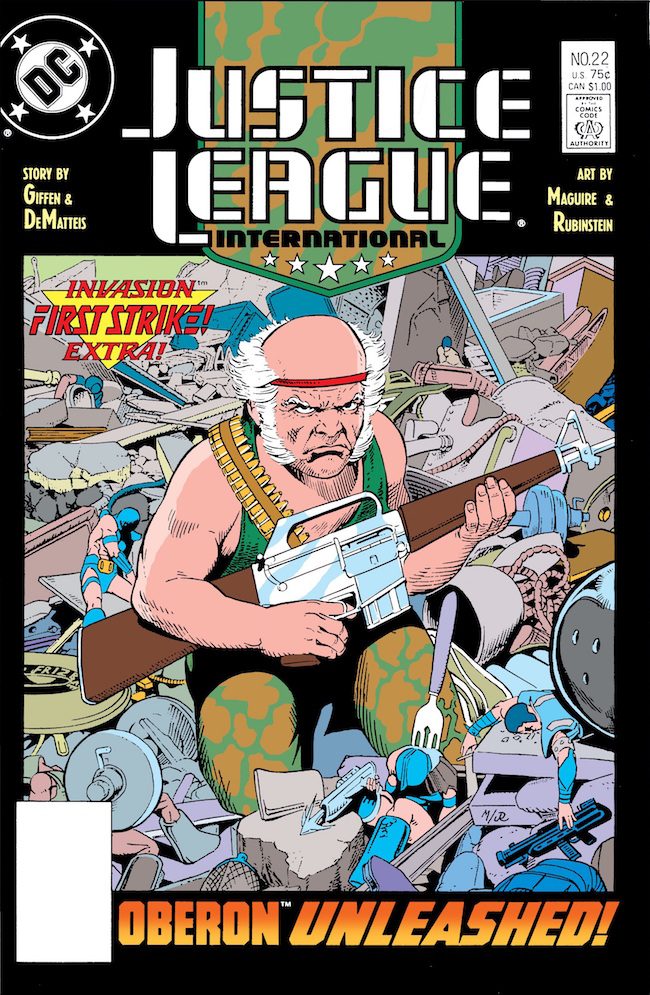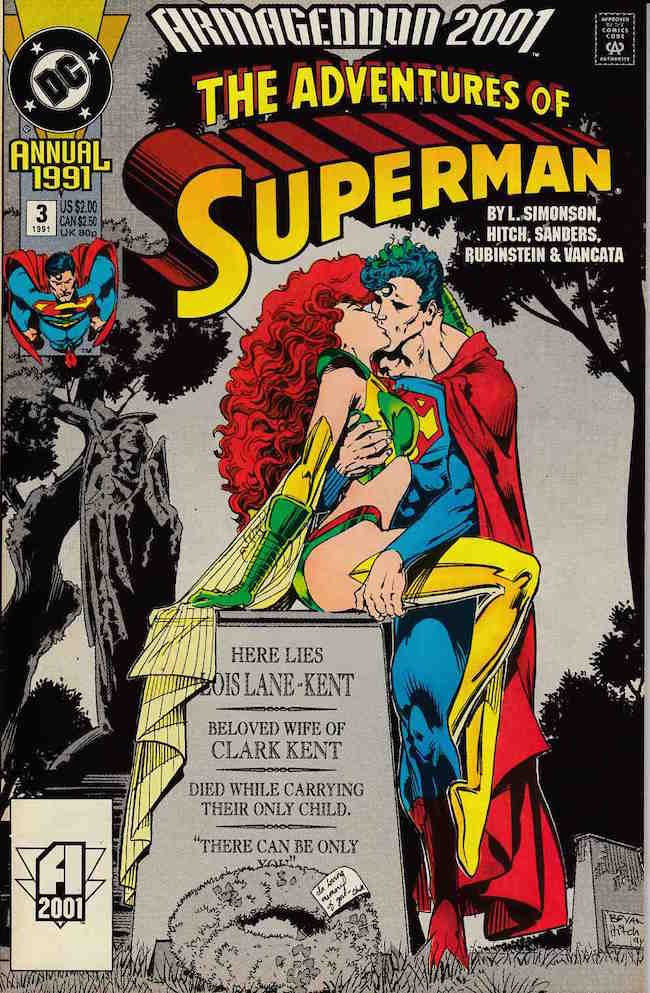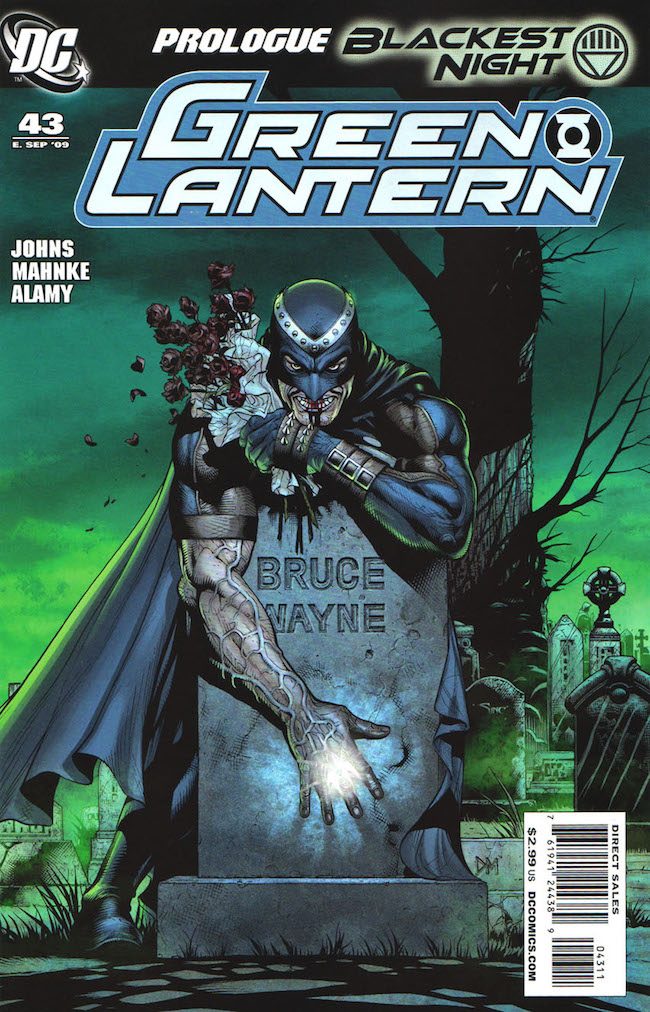
The way I read comics has changed significantly over the course of the last twenty years. Maybe it’s a familiar story to you: buying and collecting comics is great when you’re a kid, sort of OK as a teenager, and then progressively more of a goddamn hassle the older you get. There’s less time, less room, less money - sometimes really no money at all. And comics aren’t even a dollar anymore, not unless you can find a store that still keeps the dollar box stocked.
There was pirating, sure - and I’m not even going to try and convince you I haven’t done my fair share of that. But as with everything, pirating got harder too. Did pirating impact sales? Almost certainly, but then, so did everything else, just like with music, movies, and books. And that kind of skullduggery is surely a young man’s game, and as I am no longer particularly young nor a man, there isn’t a whole lot of appeal to downloading multiple gigabytes of pirated comics I know I’ll never get around to reading.
The problem, ultimately, is that comics really don’t represent a very good return on your entertainment dollar. I realize that might seem like heresy in the virtual pages of The Comics Journal, but it’s an unavoidable conclusion in a time when $4 has become the baseline cover price for the Big Two. Spending $4 on something that takes ten minutes - at best - to read, which then becomes just another sliver in a cardboard brick you have to heave around your garage until the day you die . . . it’s just not a good use of anyone’s money unless your dad is a lawyer who tries to buy your affection with credit cards. In that case, go right ahead, spend pop’s blood money. The rest of us are sitting around scratching our heads and wondering what became of our wasted youths. With all that in mind, it was really only a matter of time before the companies themselves started to figure out there was a better way to do business.

Enter DC Universe, a new-ish subscription service offering, well, guess.
If you have a subscription to Apple Music, you will recognize the model: you don’t own anything, but for a nominal fee - $8 in the case of the DCU - you get access to everything. You can read all you want. There’s no cap, no maximum number of pages. Literally all you can read at the swipe of a finger, and brother, I can read a lot. There goes the old cost-benefit analysis out the window, to be replaced with something significantly more enticing. All you can eat, essentially for the price of one meal at McDonalds, a month. (I can’t be the only person who indexes my monthly expenses to how much fast food I can eat, right? Right?)
But as with the Apple Music example, the business model raises a lot of questions. The first one being - who all is getting paid? Given the way the comics industry works, my best guess as far as royalties for older comics would be, “no-one.” Apple Music is a great example: even popular artists make almost nothing from streaming, fractions of pennies on the dollar compared even to what they used to get for radio spins. Now, as always, the best way to actually show your support for musicians is to buy physical media from which they do receive more substantive royalties. Likewise, actual printed books still accrue royalties for creators (although they’re not called royalties anymore, because that implies a degree of control or ownership over ideas which they neither control nor own), but a few minutes on Google betrayed no information in the realm of digital royalties outside of actual individual digital sales.
The situation, then, is similar to that of buying back issues: no one gets or has ever gotten royalties from secondary market sales, but the difference here that the company is itself is opening up their backstock for the edification of readers everywhere. Now, there’s only so many ways you can slice that $8, I freely acknowledge. But it’s something to think about going forward.

Another concern from the Apple Music model: the question remains as to whether or not the product itself is cheapened by ubiquity. The old model of buying and collecting placed a premium on the physical experience of the pamphlets themselves, in such a way that was unquestionably ennobling to the artifacts. When you have to track down physical copies of something that not only costs money but needs to be specially preserved in order to retain its value, it weighs more in your mind. Whereas simply buying a subscription and grazing whatever and whenever you want detaches the mind from that kind of curatorial instincts. There are no more pages to worry about creasing, or spines to roll, or water damage to take a few dollars off shitty old Silver Age books: it all looks pretty good on the computer screen, whether it’s been carefully recolored or just scanned.
So, do I miss the feel and the smell of old back issues? The thrill of the hunt and the satisfaction of a bargain well cornered? Well, yes . . . but the fact is that I wasn’t really doing that anymore, anyway. All those back issues take up space, y’know, and I’m already paying for two storage units that are both at least partially filled with old comic books. At a certain point something had to give, and chasing after the thrills of a lost youth definitely counts as “something” in this scenario.
As for the actual service itself, it must be said that although I purchased the subscription solely on virtue of the comics available to be read thereon, it’s not being sold primarily as a comics reading service. Point of fact, the way the app is put together leaves little doubt in the viewer’s mind where they want your eyes to go: the programming, in the form of oodles and oodles of old cartoons and movies emptied from the Warner Brothers vaults, as well as a few bits of original programming designed to entice people who might not otherwise get out of bed for moldy old comics. In all honesty I haven’t spent much time looking around at those features, because I’m just not that invested in watching old episodes of Super Friends. They’re there, as well as new shows created specifically for the app like Titans and Doom Patrol, and even oddball rarities like the 1979 Legends of the Superheroes TV movie. But in all honesty you could make the purchase based solely on the comics included therein and consider the rest of the stuff as more or less “value added.”
The one burr in the saddle here is selection. If you get the service hoping for a deep dive into the complete DC Comics library, you’ll be sorely disappointed. A search for “Doom Patrol,” for instance, finds the first and second series - both the original that spun out of My Greatest Adventure and the 1980s revamp that Grant Morrison took over - but as of this writing includes only the first issue of the underrated 2001 run written by John Arcudi. The entirety of the subsequent Byrne run is available, though, so don’t worry about that. Anyone ambitious enough to want to tackle a read-through of Detective Comics will be disappointed at present - the selection skips directly from #132 to issue #200, before then skipping all the way to #298.

The selection is like that all down the line. Lois Lane’s first series is represented by only a scant sixteen issues, but her two-issue showcase from the late 80s by Mindy Newell and Gray Morrow is available. The entirety of the late 90s Tangent Comics fifth week event is available, but not the Superman’s Reign follow-up series from the early 2000s. If you’re hoping to take a deep dive into the Golden Age, the selection is a bit patchy: some key series, like All-Star Comics (home of the 1940s Justice Society adventures, and therefore a good “sampler” for the era), are present in their entirety, but More Fun is represented by a scarce five issues. And, although I’m not completely certain, I think every appearance of the Legion of Super-Heroes is present and accounted for, because Legion fans would probably riot if they weren’t.
So in terms of selection it’s undoubtedly a mixed-bag in terms of availability - if you go looking for rarities, prepare to be disappointed. But just in terms of what is available? There’s still more than any one person could read in a year. Just the other day I wiled a pleasant afternoon reading the Len Wein / Dave Gibbons run on Green Lantern - had I paid cash money for those books individually I would almost certainly have regretted it, since I hate Hal Jordan and his problems make me laugh. But I’ve always wanted to see Gibbons’ art for the series, and sure enough, it’s every bit as gorgeous as you might think even when he’s illustrating the adventures of a very terrible superhero. (Seriously: he has a whole sector of space to patrol and thinks it somehow speaks well for his character that he spends all his time bumming around his girlfriend’s aviation business. How many people die every day on the other side of the galaxy while Hal is busy hotdogging for Carol? Too damn many.)
But here again we run into problems: Green Lantern under the stewardship of Steve Englehart and Joe Staton changed with issue #200 to The Green Lantern Corps, but the latter series is represented only partially on the service. Likewise, this stretch also featured the only actual glitch I’ve encountered in my reading, with Tales of the Green Lantern Corps Annual #3 jumbled to the point of unreadability. While, true, this is the only such mistake I’ve found in my browsing, this is actually a fairly crucial issue, featuring as it does the Alan Moore / Kevin O’Neill back-up that later became the basis for much of Geoff Johns’ run. So, you know, not like it’s one people are ever going to seek out specifically or anything.
For the past few days I’ve been reading the run of the late 80s Secret Origins revival, because I can never seem to get enough of Roy Thomas regurgitating old comics - especially when Gil Kane shows up every now and again to help out. This is a great example of a run of comics I’ve always wanted to read, but not really enough to pay full-tilt-boogie for what is, in actuality, a very spotty anthology series. The online format actually flatters the material better than I could have expected, allowing the reader to read or skim at their own pace, and to place those stories in full context with the company’s other output. Instead of feeling ripped-off by an unsatisfactory installment, its easier to forgive when placed in a pile.

Another shortcoming that could hopefully stand to be improved in the future is the curation of crossovers. While they’ve taken initial steps with the “Saga” feature to compile, for instance, the entirety of No Man’s Land, there are still many more crossovers that remain in various states of incompletion and chaos - and, really, who’s going to want to read No Man’s Land without first delving into Cataclysm? They have the two issues of the Armageddon 2001 mini-series but almost none of the crossover annuals that comprise the bulk of the story. Considering just how much of the company’s output - basically since the mid-80s! - has been comprised of such crossovers, it might behoove them to make expanding the “Saga” features a priority - otherwise, navigating entire decades of the company’s output begins to resemble nothing so much as an ant trying to navigate across a piece of Swiss cheese.
Although initially trepidatious regarding aesthetics, as I eased into the service I found myself actually more excited to read comics than I had been in, well, years. The new comics seem to run about a year behind the stands, but honestly since I subscribed I haven’t read anything newer than 1995. As it stands, the service is clearly still in its infancy. The occasionally spotty backstock and poor organization can be forgiven for a service just over a year old, and hopefully the years to come will bring significant tightening of those reins. Because I don’t see the subscription model going away anytime soon. For all its flaws, it would be impossible to deny that it offers a superlative value by any measure - and when was the last time you could ever say that about a comic book?






